
It's not just Brazil's Amazon rainforest that's ablaze Bolivian fires are threatening people and wildlife
(MENAFN- The Conversation) Up to800,000 hectaresof the unique Chiquitano forest were burned to the ground in Bolivia between August 18 and August 23. That's more forest than is usually destroyed across the country in two years. Experts say that it will takeat least two centuriesto repair the ecological damage done by the fires, while at least500 speciesare said to be at risk from the flames.
The Chiquitano dry forest in Bolivia was thelargest healthy tropical dry forest in the world . It's now unclear whether it will retain that status. The forest is home to Indigenous peoples as well as iconic wildlife such as jaguars, giant armadillos, and tapirs. Some species in the Chiquitano are found nowhere else on Earth. Distressing photographs and videos from the area show many animals have burned to death in the recent fires.
The burnt region also encompasses farmland and towns, with thousands of people evacuated and many moreaffected by the smoke . Food and water are beingsent to the region , while children arebeing kept home from schoolin many districts where the air pollution isdouble what is considered extreme . Many families are still without drinking water. While the media has focused on Brazil, Bolivians are asking the world to notice their unfolding tragedy – and to send help in combating the flames.
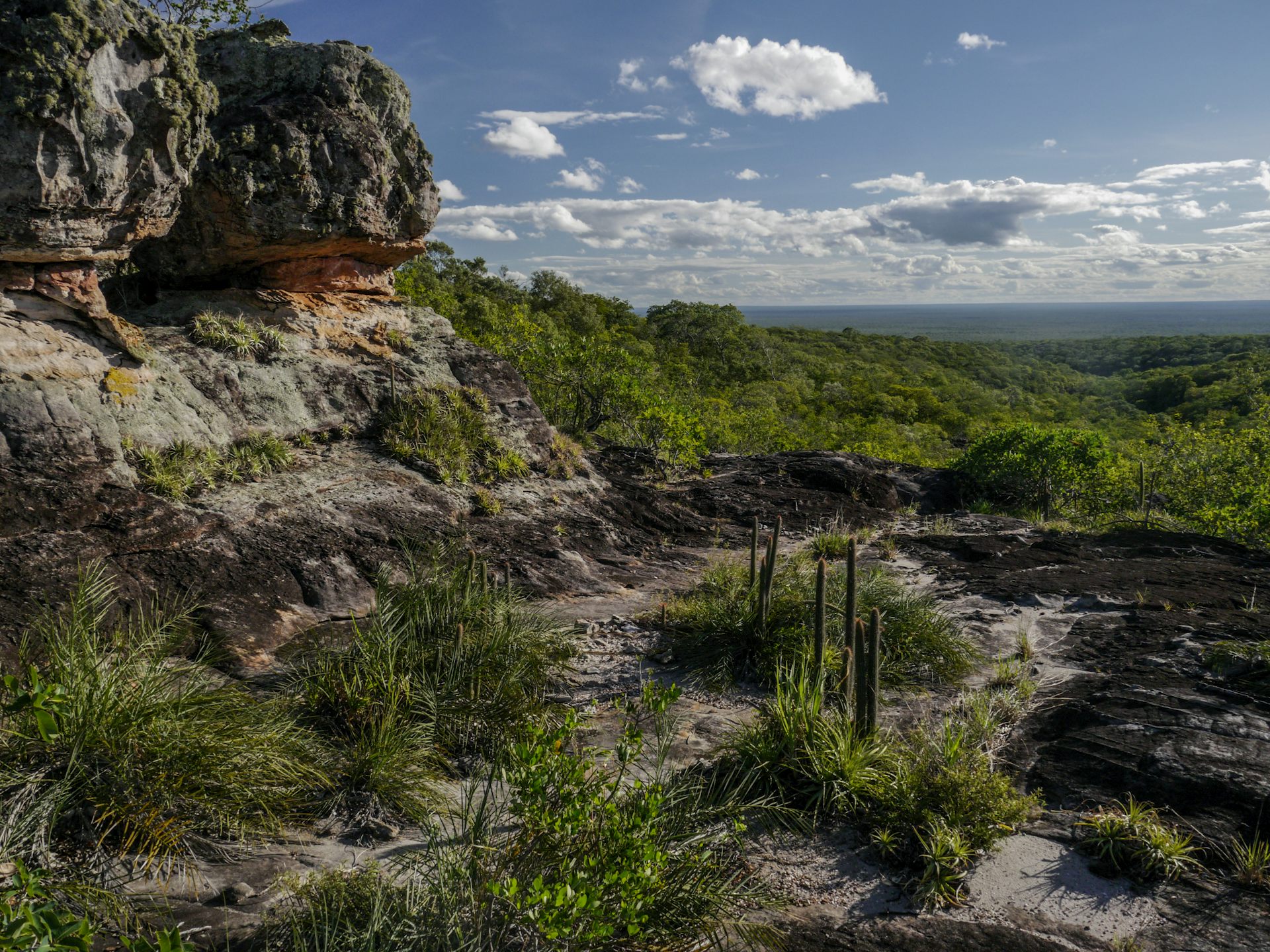
Dry forests of the Chiquitanos before the fires.
Alfredo Romero-Muñoz, Author provided
It's thought that the fires were started deliberately to clear the land for farming, but quickly got out of control. The perpetrators aren't known, but Bolivian President Evo Morales has justified people starting fires,saying : 'If small families don't set fires, what are they going to live on?'
The disaster comes just a month after Morales announced a new 'supreme decree' aimed at increasing beef production for export.Twenty-one civil society organisationsarecalling for the repeal of this decree , arguing that it has helped cause the fires andviolates Bolivia's environmental laws . Government officials say thatfire setting is a normal activityat this time of year and isn't linked to the decree.
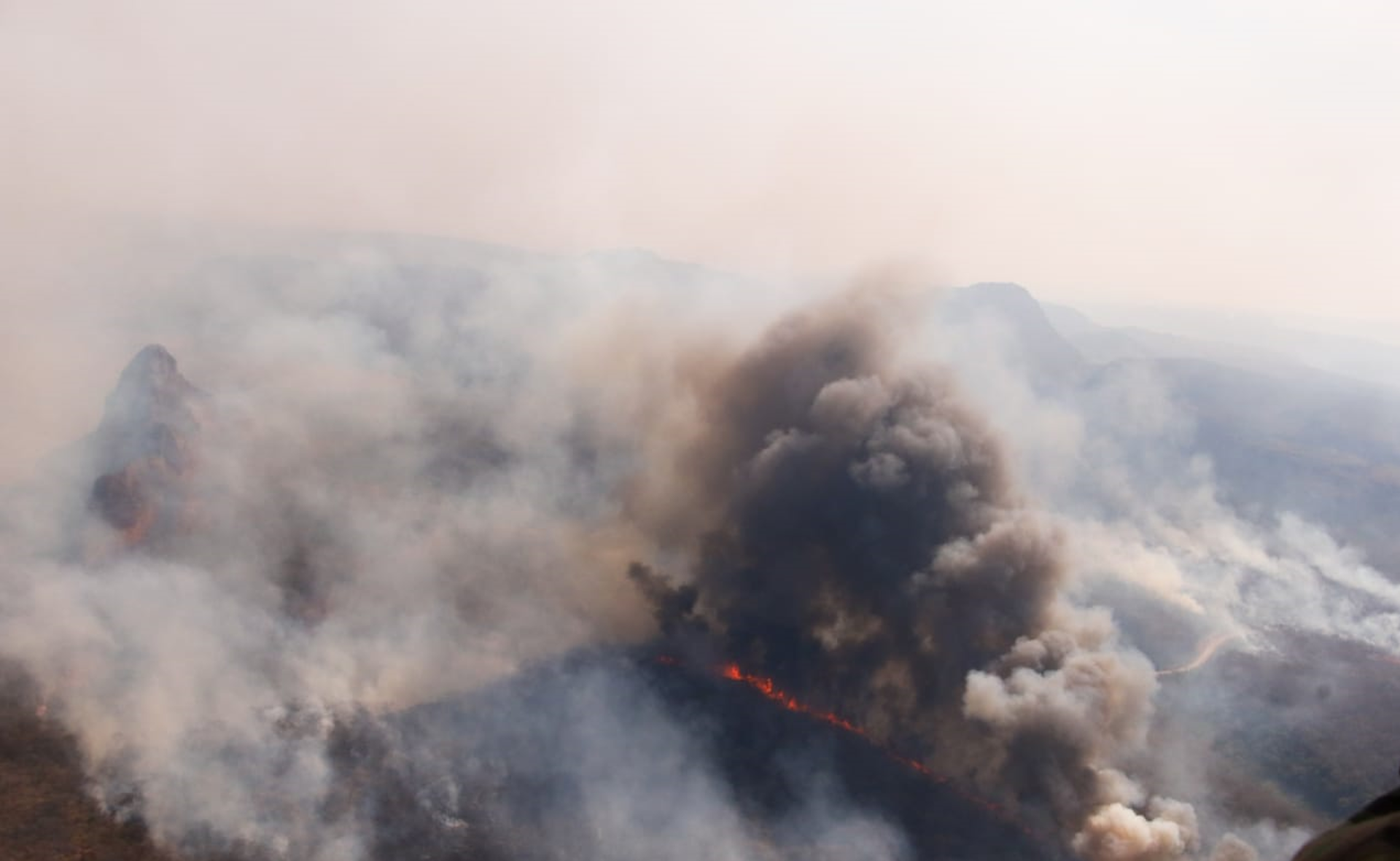
Fires burn across Santa Cruz state.
Ipa Ibañez, Author provided
Morales has repeatedly said thatinternational help isn't needed , despite having sent justthree helicoptersto tackle the raging fires. He argued that the fires are dying out in some areas – although they continue to burn in others and have now reachedBolivia's largest city , Santa Cruz de la Sierra. Many say that the fires could have been contained far sooner with international help, as videos show volunteers trying tobeat back the fires with branches .
As the fires worsened, people gathered to protest in Santa Cruz state. Chanting ' we want your help ', they complained that the smoke was so bad they were struggling to breathe. They want Morales to request international aid to fight the fires. While firefighters and volunteers struggle to tackle theblaze in 55℃heat, Bolivians have set up afundraiserto tackle the fires themselves.
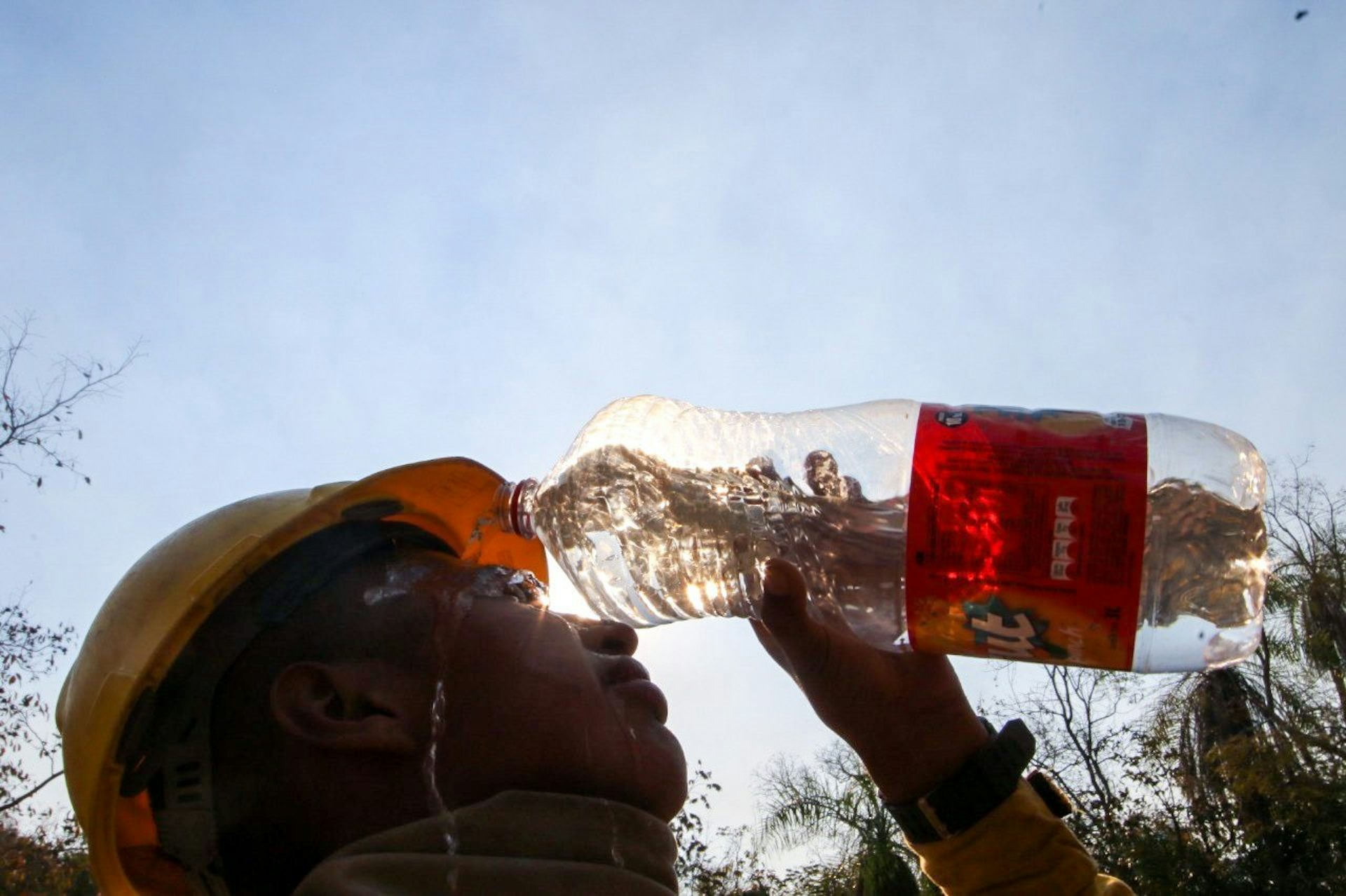
The extreme heat has made fighting the fires intolerable for those involved.
Ipa Ibañez, Author provided
A fortnight after the fires began, asupertanker aeroplaneof water arrived, hired from the US. But if the reactions to thepresident's announcementon Twitter are anything to go by, many Bolivians think this is too little, too late. Morales is fighting a general election and has facedcriticismfor staying on the campaign trail while the fires spread.
Some Indigenous leaders are asking for a trial to determine responsibility for the fires, and the response to them.Alex Villca , an Indigenous leader and spokesperson, said:
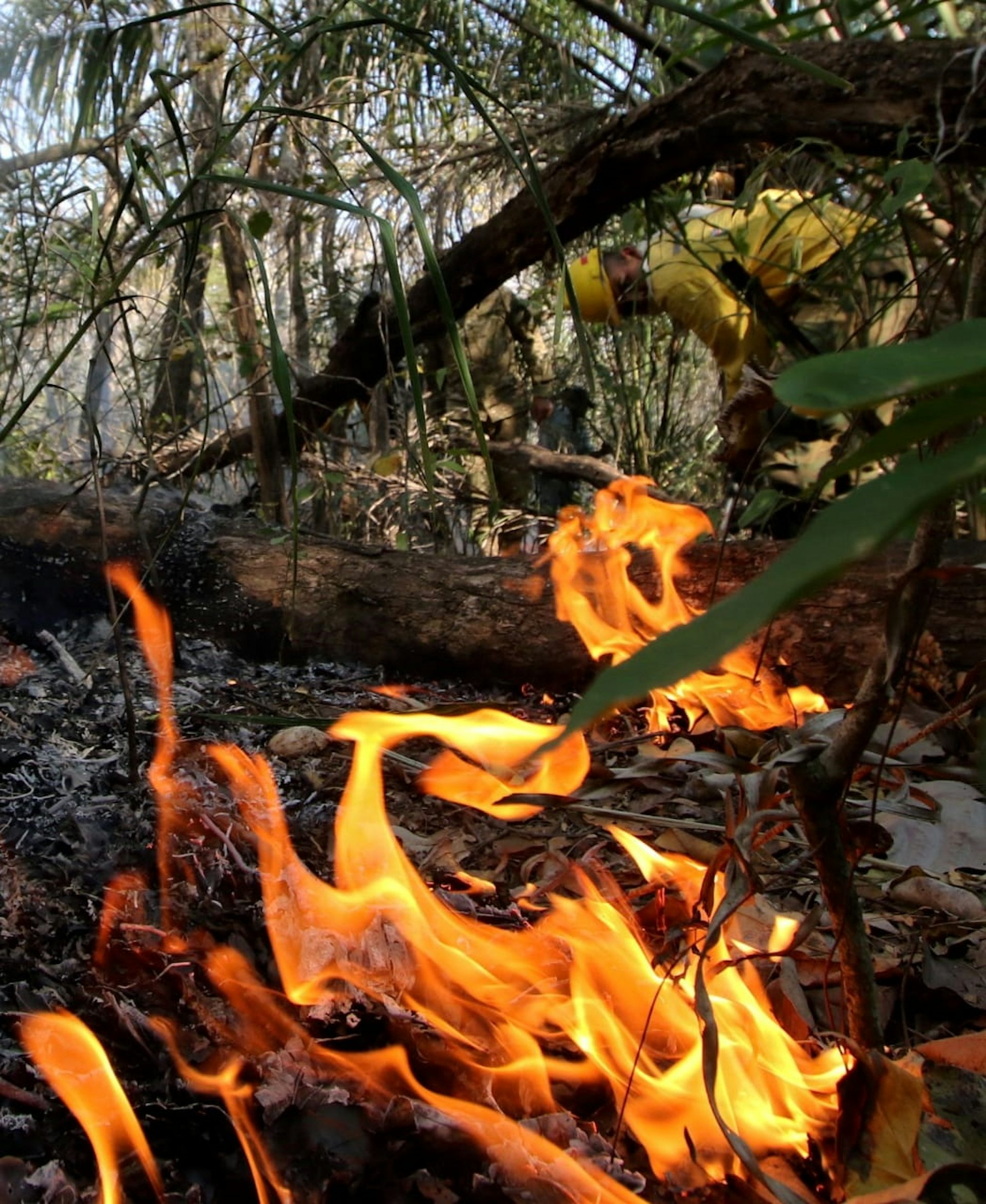
The dry forest understorey ignites while firefighters deploy fire breaks.
Ipa Ibañez, Author provided
President Morales came to power in Bolivia in 2006, on a platform of socialism, Indigenous rights, and environmental protection. He passed the famous ' Law of the Rights of Mother Earth ' in 2010, which placed the intrinsic value of nature alongside that of humans. His environmental rhetoric has been strong but his policies have been contradictory. Morales hasapproved widespread deforestation , as well as roads and gas exploration in national parks.
While the fires in the Chiquitano have dominated the media within the country,hundreds morerage across Bolivia, assisted by the recent drought. It's unclear whether the response to these fires will affect the October election outcome, but sentiments are running high in the country, where more than 70% of peopleprioritise environmental protectionover economic growth.
Bolsonaroand Brazil might grab the headlines, but Bolivia too is now host to a desperately serious humanitarian and environmental situation.

Click here to subscribe to our climate action newsletter. Climate change is inevitable. Our response to it isn't.
Climate change
Brazil
South America
Global warming
Rainforest
Wildfire
Amazon forest
Bolivia
Evo Morales
forest fires

Legal Disclaimer:
MENAFN provides the
information “as is” without warranty of any kind. We do not accept
any responsibility or liability for the accuracy, content, images,
videos, licenses, completeness, legality, or reliability of the information
contained in this article. If you have any complaints or copyright
issues related to this article, kindly contact the provider above.

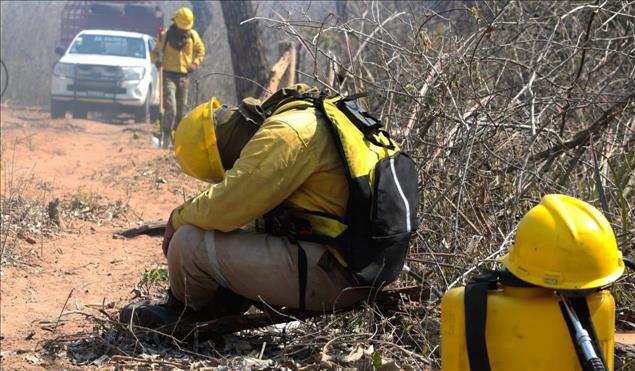















Comments
No comment